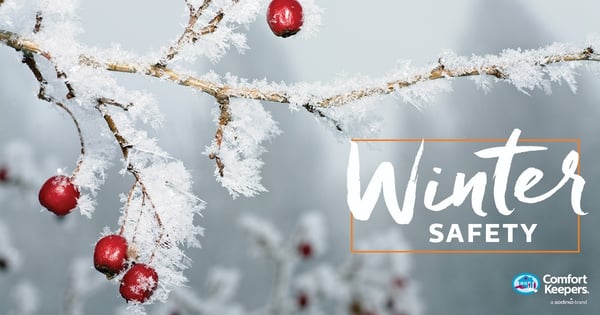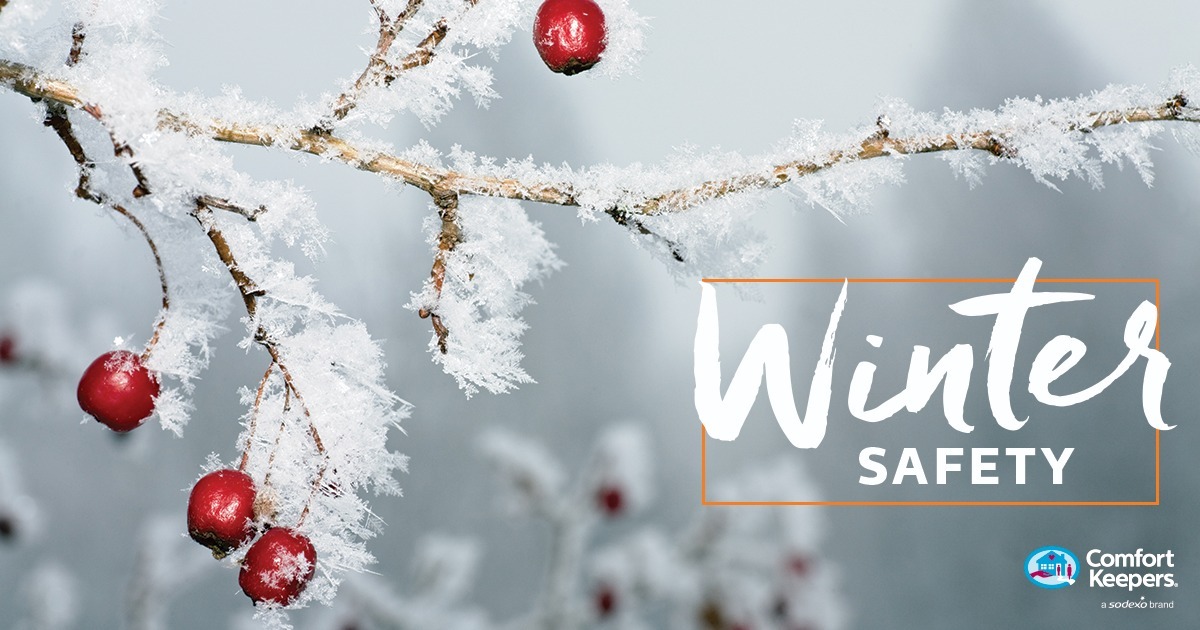Winter Basics for Seniors Going into The Great Outdoors

Wintertime can pose the biggest challenges for seniors as the snow and ice pose additional issues when venturing outside. Help your senior loved one be prepared this winter season with a few basic things you can do together to have successful trips outdoors.
1. Wear the Right Clothing
As we age, our circulatory system system isn’t as efficient and we can be impacted by cold much faster than younger people. Because of this, it’s especially important to find warmer clothes before taking that winter walk or drive. Most of our body heat is lost through our noggins, so make sure you have an excellent hat. Not all hats are created equal. For severe cold, you may want to find a stocking style hat that is made of wool or lined with fleece. Find good gloves that keep fingers warm, as they are more susceptible to cold than the rest of your hands. You may even consider warm mittens that allow your loved one’s fingers to stay together, decreasing their exposure. Feet are always at a disadvantage because they are so far away from the heart and body core temperatures to keep things warm. Find good boots if they are going to be out for a long time. Boots lined with wool or newer materials like thinsulate can help keep the chill away. Look for waterproof materials with rubber that is vulcanized to other parts of the boot to stay dry. Buy something that will help them walk when it’s icy. Boots with good tread can help get a grip when it’s snowy but it may take more than that if they need to go out on icy days. Crampons are a great accessory to have available if it’s slippery and you have somewhere you have to go.
Seniors with dementia sometimes will resist wearing clothing that feels confining or restrictive. When dealing with these circumstances, it’s always best to remember a few basic things:
- Choose comfortable, non-slip shoes or slip on boots.
- Allow enough time for dressing so you are not rushing the process.
- Find warm clothing that is easy to put on. Things like coats that zip up or a warm shawl that requires no additional closure devices.
- Sometimes favorite themes work well like a sports team or hunting item.
2. Know the Signs of Hypothermia
You can take all the precautions possible and still end up in trouble. For instance, going for a walk they get overheated, perspire and then the cold starts to penetrate their body. You dressed them warm, but some days with temperature changes or on more difficult walks they get heated up and then the sun goes away and it gets chilly. It’s always good to monitor those around us for possible hypothermia on cold days.
- Shivering
- Slurred speech or mumbling
- Slow, shallow breathing
- Weak pulse
- Clumsiness or lack of coordination
- Drowsiness or very low energy
- Confusion or memory loss
- Loss of consciousness
If you discover anyone with these issues, get them to a warm place as soon as possible and contact a medical professional for direction on what to do. For more information on hypothermia and other wintertime health issues click here.
3. Get Ready for Winter Driving
Seniors that have maintained their independence, of course, will want to go out and drive during the winter and get away from that cabin fever feeling. Here are some tips on things to consider--many are tips we should all follow! Cover these basic ideas with your senior loved one.
Winter safety tips checklist to make sure their ready to handle the coming winter months.
- Check the latest weather reports on the radio or if they have one a smart phone application.
- If venturing out of the city, make sure they have a working cell phone and charging cable that plugs into the car.
- If they use a motorized wheelchair or scooter, think about getting a backup battery, and have a backup, such as a cane or walker.
- Have at least a seven-day supply of medications along if traveling any distance away from home. If they use oxygen, have an emergency supply to last three days or more.
- For any medical equipment that requires a power source, check with the medical supply company about a backup power source.
- Keep walkways and steps around the home clear of debris to help prevent slips and falls.
- Use salt and sand on driveways and sidewalks in the winter to melt snow and improve traction, and shovel walkways often.
- Winterize the car by checking antifreeze levels, tire tread and pressure, and windshield wipers. Stock the car with basic emergency supplies. Don’t forget food!
- Have them let you or someone know where they are going and when they will return. Make sure they have your contact information on them.





